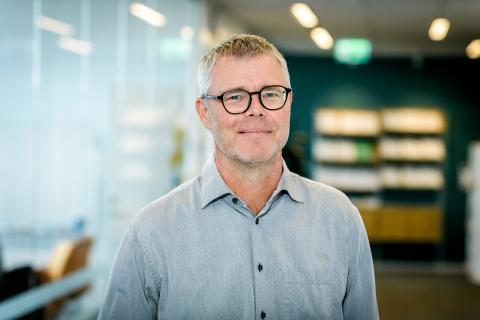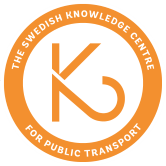Article highlighted
New policy lab for on-demand public transport
K2 is creating a new platform for collaborative learning among researchers and practitioners in the field of on-demand public transport – a service that is dynamically tailored to meet the immediate needs and request of the passengers. The policy lab aims to generate and disseminate knowledge and contribute to an increased availability of the service in Sweden.

The initiative aims to establish a policy lab, a central platform, where practitioners and researchers can exchange experiences to increase the knowledge about on-demand public transport. The hope is to improve the conditions for the development of sustainable on-demand services in Sweden.
“By enabling collaboration and learning among different stakeholders, we hope to broaden the knowledge and break through isolated projects and pilots”, says project manager Jan Persson, who is a researcher at Malmö University and K2.
A dynamic transport service
On-demand public transport is a service that is dynamically tailored to meet the immediate needs and requests of passengers. Unlike traditional fixed-route and fixed-schedule public transport, on-demand services allow users to request a ride or route that suits their specific requirements, typically using a mobile app or another digital platform. The service is open to everyone, and payment is per person.
The service is intended to function as a complement to conventional public transport and may be particularly suitable in rural areas and with low demand.
“Interest in on-demand public transport is growing rapidly, and many have already implemented or plan to implement the service, both in cities and in rural areas. At the same time, many unanswered questions and challenges remain regarding how, where, and when it is appropriate to offer on-demand traffic and what the societal effects will be”, Jan Persson explains.
“The policy lab addresses the challenges that on-demand public transport faces so that we can create better services for travelers. Our hope is to develop new solutions and recommendations”, says Jan Persson.
A platform, new research, and industry initiatives
The policy lab consists of three central components:
- A platform for knowledge exchange and learning between practitioners and researchers. Key activities include study visits and dialogue meetings.
- Research projects aimed at generating new knowledge in the field through collaborations between researchers and other stakeholders. A new doctoral project aims to improve the decision support for practitioners when considering a new on-demand service.
- Central industry initiatives in the field (e.g., pilots). Existing and planned services are studied and discussed.
Many engaged stakeholders
The policy lab is funded by Vinnova and operated by K2 through Malmö University. The project also involves the Swedish National Road and Transport Research Institute (VTI), Lund University, as well as Västtrafik, Region Stockholm, Nobina and Svensk kollektivtrafik.
The project includes the initiation and operation of the policy lab for three years with a total budget of approximately SEK 6.2 million.
“The practitioners and researchers participating in the project will together shape the policy lab and contribute with knowledge and experience. Additional stakeholders will be able to participate, allowing the lab to grow organically”, Jan Persson explains.
Want to know more?
If you are curious about the project, feel free to contact one of K2's researchers within the lab:
Jan Persson, Malmö University
Åse Jevinger, Malmö University
Helene Lidestam, Swedish National Road and Transport Research Institute, VTI and Linköping University
Fredrik Pettersson-Löfstedt, Lund University
